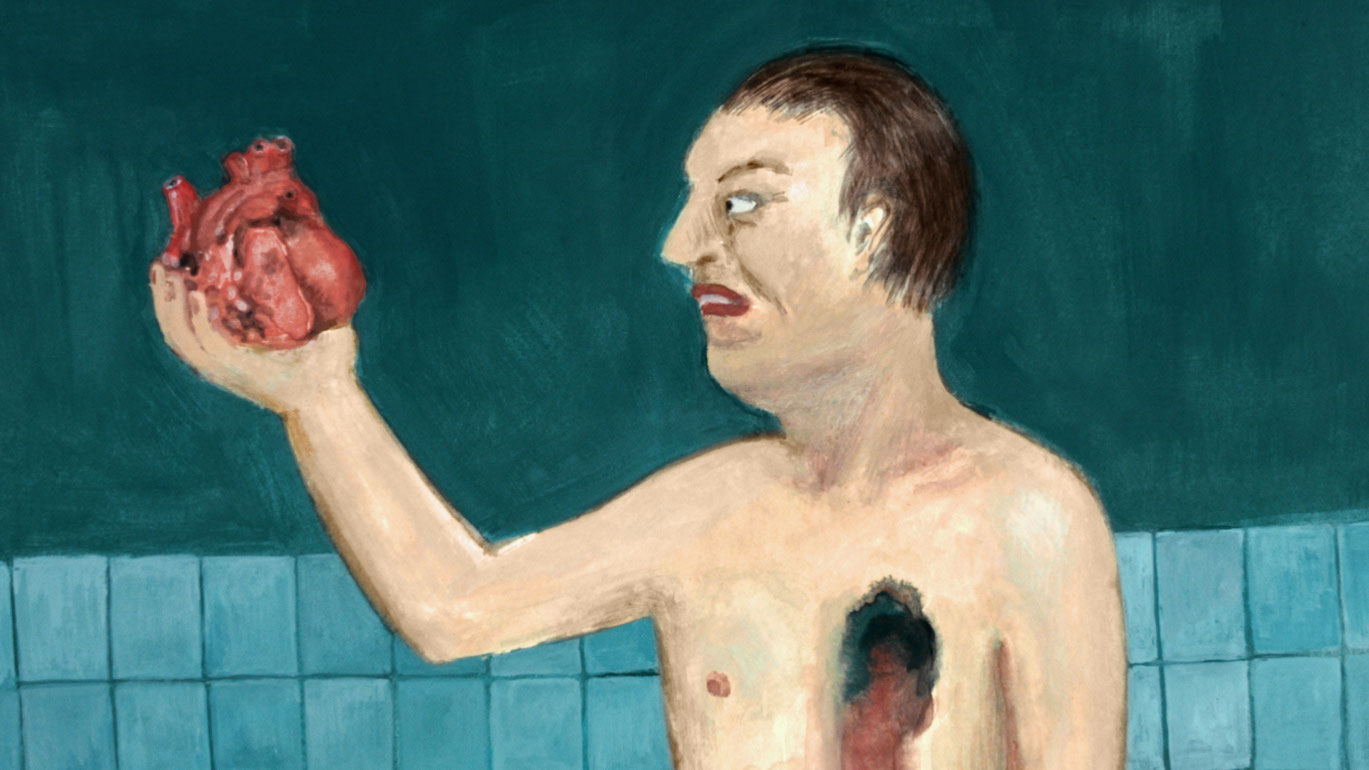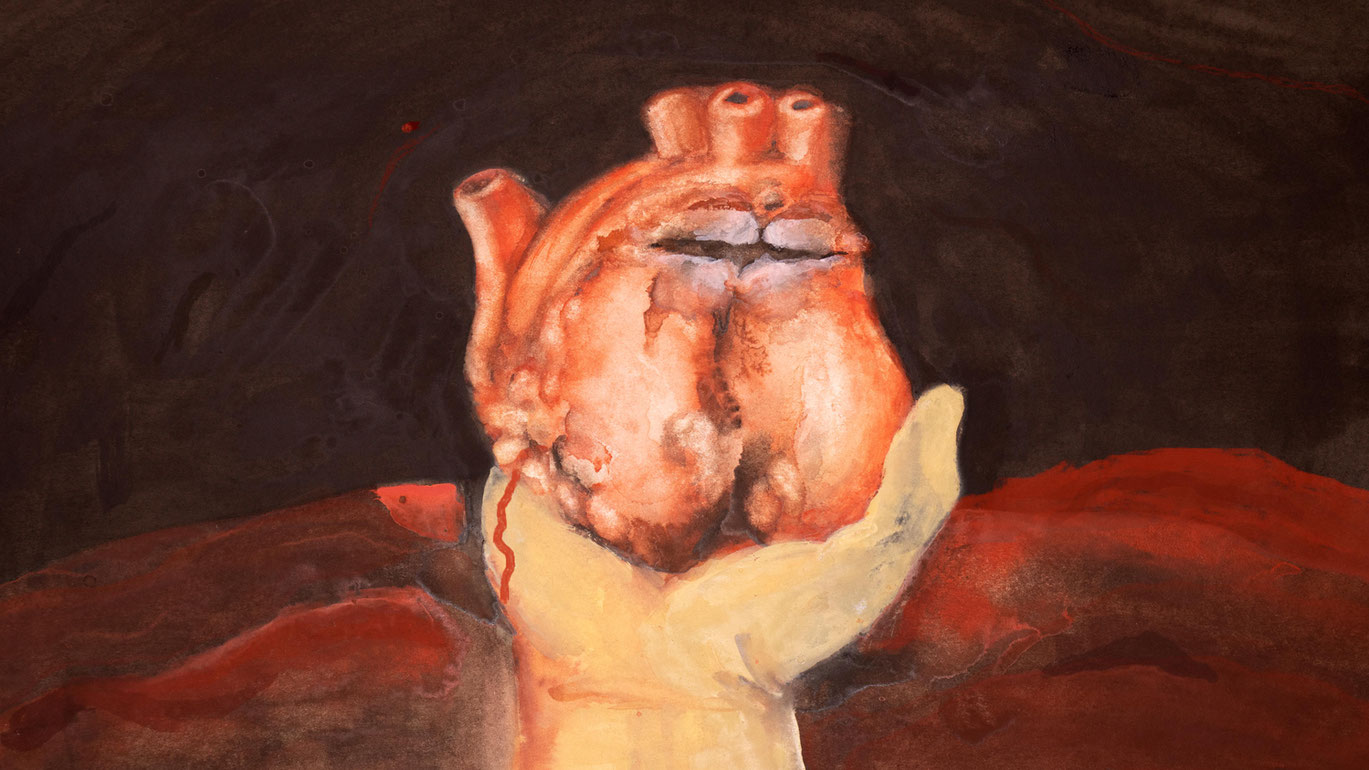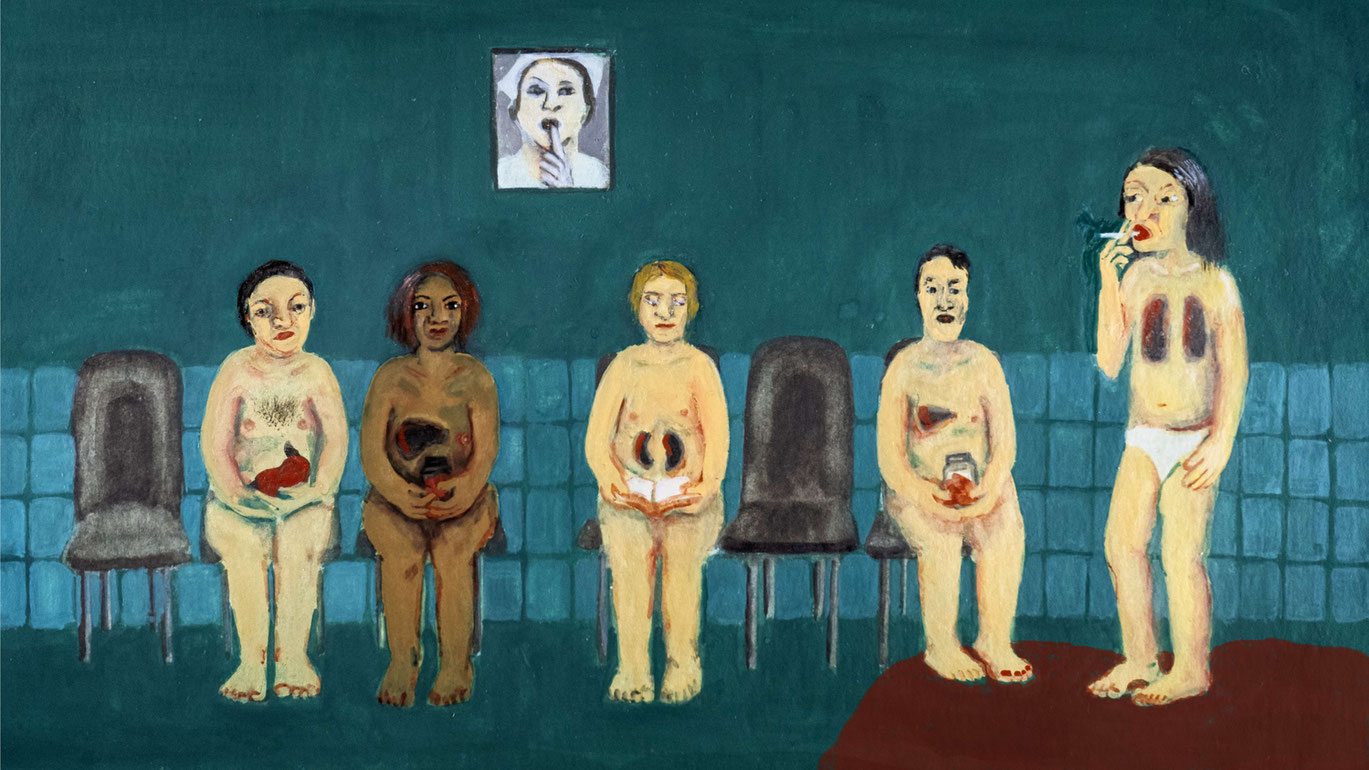Tako Tsubo
Mr. Ham decides to have his heart removed in order to be relieved of his complicated feelings. The doctor assures him that this is no longer a problem at all in this day and age. However, Ham keeps his heart for a while after the removal in order to perhaps understand it better after all. Tako Tsubo* is an animated, surrealistic reflection on dealing with feelings in a meritocracy.
*Tako Tsubo, also known as stress cardiomyopathy or broken heart syndrome, is a rare, acute and often serious functional disorder of the heart muscle, similar to a heart attack, and is usually caused by exceptional emotional or physical stress.
"The heart is just a burden." This is what – in the first of the film's three dialogues – a doctor tells Tako Tsubo's protagonist, Mr. Ham. This minimalist animation short, an image/text-symbiosis by Eva Pedroza und Fanny Sorgo, is as pithy as it is painterly and pointillistic. Its title comes from the Japanese name of a stress-related cardiomyopathy. So, without much ado, Mr. Ham has his heart removed in an operation. The lapidary course of events fits the wilfully odd world designed in Tako Tsubo: In a forest – the soughing of which comes across in fluttering drawing – people are naked and talk without much sound. At times, the laconic weirdness is punctuated only by the blinks of eyes and the twitches of mouths.
All movement is micro-gesture here. That goes also for the slight turning of Ham's hand as he holds his newly removed heart in front of himself, pondering: "Subject... object..." Turning from muscular thing to Ego's hard core, the heart dissolves into abject, i.e., into the mess made by the blood that flows from the hole in Ham's chest. But it is by way of affect that Ham's heart has already become independent and stubborn, releasing an angry diatribe of mysterious quasi-rhymes – mother, embittered, pity – at him. Poetry merrily flows from the scene in which a heart is held pensively, much as Shakespeare's brooder (Ham-let!) once held up a skull.
In the long run, however, it is the lung that shows itself as missing. A woman with two operation holes in her chest rises from Ham's blood-lake; she lets him bum a cigarette of her, and she explains how she can do without her organ for breathing more easily than she could without smoking. With heart and lung gone, you can have a relaxed smoke as a couple-to-be (or maybe not) in a blood-lake panorama. It's beautiful that way. And it makes perfect sense to close with the siren-like ballad "Sweet Charity" in which Berlin-based musician Mary Ocher asks: "Will you come on down when I'm on my knees?" Sure I will! (Drehli Robnik)
Tako Tsubo
2024
Austria, Germany
6 min



